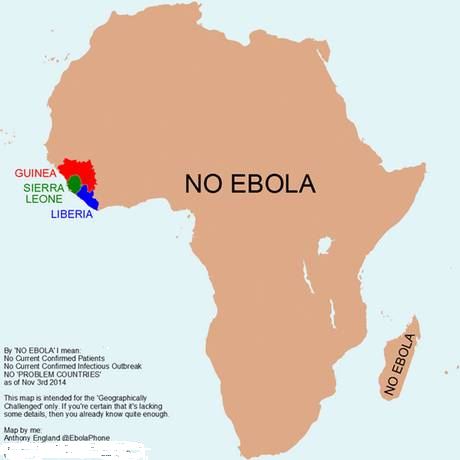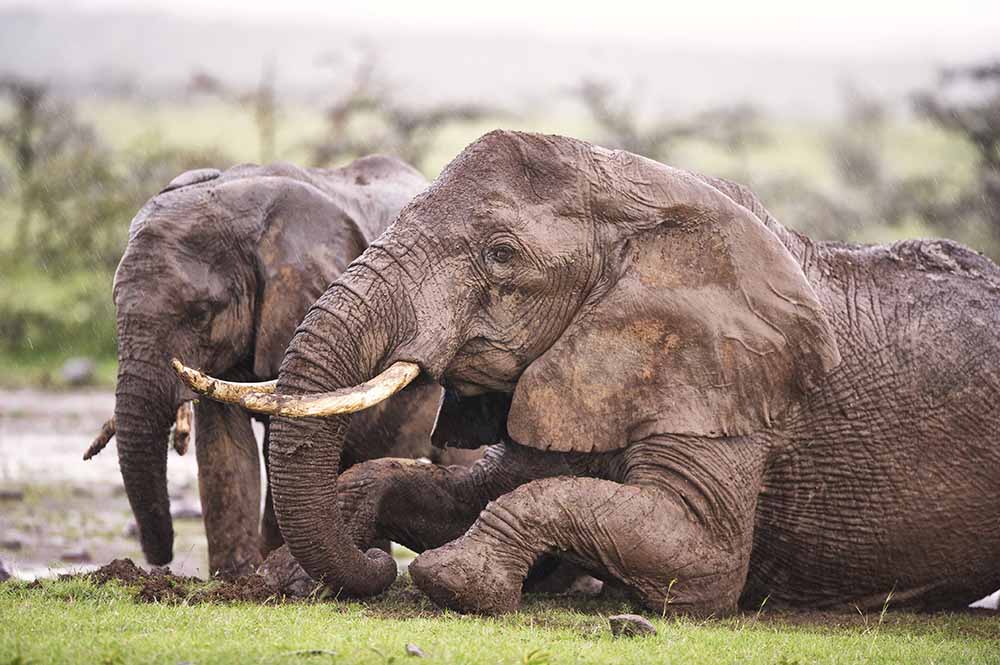The Ebola virus is having a devastating impact on the safari industry, mainly due to the poor perception that Africa is 1 country and not a massive continent.
Ebola is a terrible virus that has so far claimed the lives of over 5,400 people in West Africa. There is no doubt that the Virus has devastated the 3 worst affected countries in West Africa, namely; Sierra Leone, Guinea and Liberia, however its tragic influence is not limited to these 3 regions.
Let’s start with Geography 101. Africa is a massive continent; it is over 30,000,000 km2 and is in fact the second largest continent on Earth as well as the second most populous. Africa is made up of over 50 countries.

Many people head to Southern & East Africa to enjoy the pristine wilderness areas on a safari. The main safari countries in East Africa are Kenya & Tanzania as well as Rwanda & Uganda which are renowned as the place to see Mountain Gorillas. In Southern Africa the main safari destinations are South Africa, Botswana, Namibia, Zambia and Zimbabwe. Africa is a massive continent and the East African and Southern African safari countries are a very long way away from the West African countries that are affected by the Ebola Virus. To put things in perspective, Nairobi in Kenya is over 5,300kms away from the West Africa countries affected by Ebola and Johannesburg in South Africa is over 5,600kms away. London, Paris and Madrid are far closer to the affected West African Countries.
Would American citizens cancel a trip to Rome or Paris because of the troubled situation in the Ukraine? Would European residents cancel or postpone travel to New York or Chicago because of issues in Mexico? Ebola is also not an airborne virus and can only be caught through coming in contact with the bodily fluids of an infected person.
Countries in Southern and East Africa have also taken stringent measures to safe guard against an Ebola outbreak. For example, Kenya banned all flights from the affected West African countries to Kenya. As Nairobi is the main flight gateway for east Africa and as the distances between the West Africa countries and East African countries are so vast this measure has severely reduced any risk of Ebola reaching East Africa. South Africa has also introduced stringent measures banning foreign citizens from the Ebola affected countries from entering South Africa and Botswana as banned all citizens who have visited an Ebola affected country in the last 30 days from entering Botswana. These measures have so far ensured that these countries remain Ebola free, unlike a number of Western countries in Europe and America that have less stringent measures and have as a result experienced Ebola in their countries.
So why then is the disease having such a crippling effect on tourism in Southern & East African countries that are further away from the Ebola outbreak epicentre than many European countries? Could it be a powerful concoction of overzealous news reporting combined with a distinct lack of knowledge and general cluelessness about Africa’s geography as well as a lack of information on how the virus is spread? Attention grabbing Ebola headlines accompanied by a disturbing looking photo of the virus is enough to scare anyone away at first glance, but it’s also the complete lack of education on Africa’s geography that enhances the fear.
There is no doubt that many safari companies including hotels, safari camps and lodges are feeling the effects of the 70% drop in new bookings, however the pain goes way further than that. Tourism is big business in southern and east Africa and provides employment for many people in these countries. Along with providing employment, a lot of land in many key safari destinations is leased from the local communities. The local communities share in the profits made by the camps leasing the land and the camps are also a great source of employment for the communities. These communities have a vested interest in the success of the camps and so are often in the forefront of the fight against poaching. The communities play a massive role in protecting the wildlife but with dwindling profits that will inevitably be caused if the “Ebola Hysteria” continues, there is a real threat that not only will humans suffer as a consequence of this terrible virus but so too will Africa’s other great treasure, its wildlife.
By Stuart Parker




